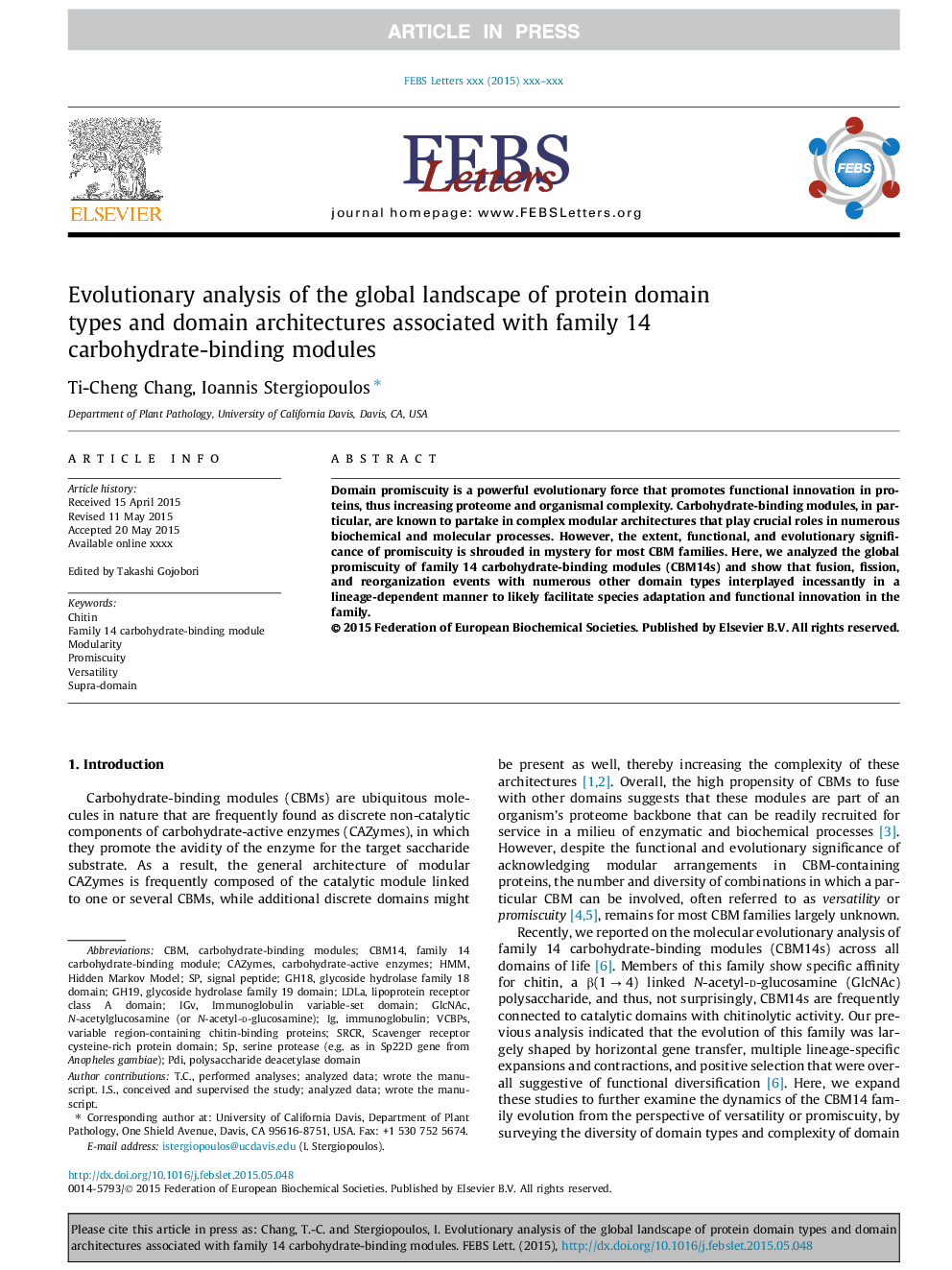| Article ID | Journal | Published Year | Pages | File Type |
|---|---|---|---|---|
| 10870070 | FEBS Letters | 2015 | 6 Pages |
Abstract
Domain promiscuity is a powerful evolutionary force that promotes functional innovation in proteins, thus increasing proteome and organismal complexity. Carbohydrate-binding modules, in particular, are known to partake in complex modular architectures that play crucial roles in numerous biochemical and molecular processes. However, the extent, functional, and evolutionary significance of promiscuity is shrouded in mystery for most CBM families. Here, we analyzed the global promiscuity of family 14 carbohydrate-binding modules (CBM14s) and show that fusion, fission, and reorganization events with numerous other domain types interplayed incessantly in a lineage-dependent manner to likely facilitate species adaptation and functional innovation in the family.
Keywords
Related Topics
Life Sciences
Agricultural and Biological Sciences
Plant Science
Authors
Ti-Cheng Chang, Ioannis Stergiopoulos,
